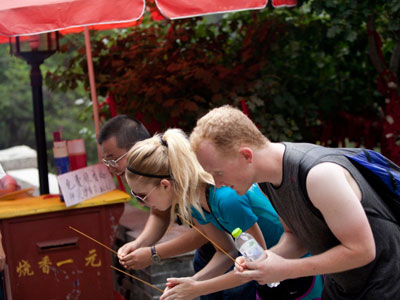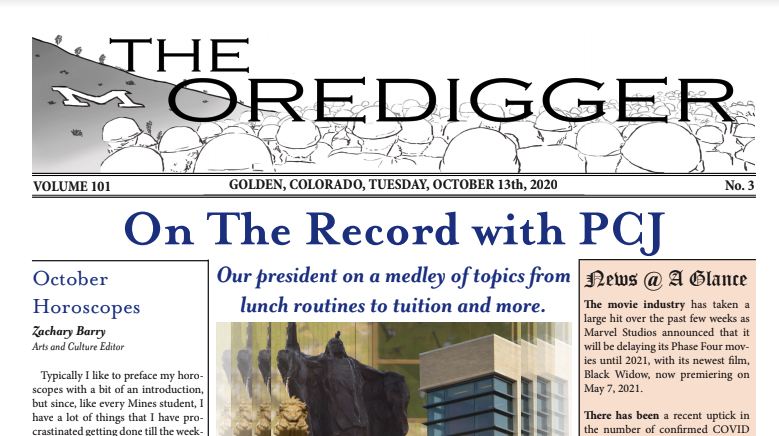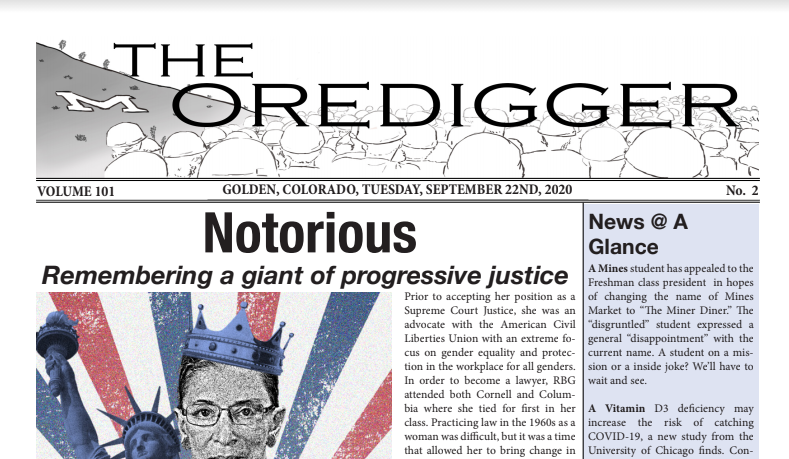The McBride Honors Program offers students a minor in public affairs. Students apply for the program during their freshman year, and if accepted, will continue for the entirety of their undergraduate career. An option within the program is a foreign area study. Students prepare for the trip the spring prior to their summer excursion. This year the 2013 McBride class took a 5,000-mile flight across the Pacific to spend 26 days in mainland China. The trip was lead by Professor Carl Mitcham, an LAIS professor and seasoned China traveler.
For eleven engineering students at the Colorado School of Mines their journey to China began months before stepping onto a plane. The McBride students had long-anticipated their foreign area study since joining the program as freshman. After years of anthropology, philosophy, economics and engineering courses, the trip was soon to become a reality. Once the destination was chosen, preparations began. During the spring semester the class dedicated three hours a week to the study of Mandarin, Chinese geography, culture and history. By the end of June, the group was ready. Meeting at the Denver International Airport equipped with one carry-on per student, the eleven engineers and lone philosophy professor began their journey.
From Denver to San Francisco, across the ocean to Beijing and finally to the coastal city of Dalian, the travelers arrived at their destination 23 hours later. The first leg of the trip was spent at Dalian University of Technology. Students were housed in the campus dorms and attended classes for two weeks. Mornings began with four hours of intensive Mandarin lessons and afternoons followed with a variety of classes including Chinese Philosophy, Science and Technology Ethics, and calligraphy. When not in class, the group roamed the city. Modern, clean, and coastal, Dalian mimics San Francisco in many respects. Trips around the city included an afternoon at Xinghai Square (the largest square in Eastern Asia), exploration of the Tiger Beach Park and Aquarium area, entrance to an international wine festival show-casing a Chinese circus, and dining at various local and downtown restaurants. A small group tackled the Dalian nightlife singing at a karaoke bar and catching the Chinese summer blockbuster film “Painted Skin Resurrection.” After two weeks the group could be found causally jogging through campus, meeting new friends for a milk tea, or braving the public bus system to go shopping or out to eat. The language was coming easier and each student was slowly falling into a comfortable routine in a place once completely foreign. At the end of their stay, the group said a heartfelt goodbye to their teachers and new friends. Dalian had become home for the time being, but it was time to continue the journey.
In the early morning a bus took the travelers to the Dalian ferry port crowded with people and cargo alike. After a six-hour ride across the Gulf of China, the ferry docked in the city of Yan Tai. After a brief one-night stay in the city it was time to travel again. The group boarded a train the next morning for a ten and a half hour ride through the countryside; their ultimate destination, Qufu, the home and birthplace of Chinese philosopher Confucius. Once reaching the final train station, tired students made their way to the hotel and prepared for the day that awaited them.
The following day in Qufu showcased everything Confucian. Students wove their way through the expansive temples and gardens comprising the Confucian grounds. In addition, there were visits to the tranquil Confucian University and museum, Confucian family mansion and cemetery. The students had studied the Confucian Analects prior to their trip, and in Qufu they saw their origins. The peace and tranquility in the ancient city was almost tangible, but again it was time to move on. Tired and sore, the group took a two-hour bus ride during the night to the city of Tai’an.
Tai’an sits in the shadows of the holiest mountain in China, Mount Tai, an intimidating climb and the next challenge for the group. Shortly after sunrise the students were bused to the mountain’s base. The hike is not for the faint of heart with 5,000 feet of elevation gain and over 7,000 ancient stone steps. Along the scenic path the group stopped at the multiple temples, paying homage to a variety of gods. By early afternoon the last of the hikers reached the mountain’s summit to look out atop the clouds and lush hills that spread before them. It is said that the journey up the holy mountain leads to enlightenment. Whether or not they found any spiritual uplifting, not a member of the group was without a smile at the mountain’s top. A cable-car ride back to the base of the mountain was a welcome reprieve for the many sore legs. That night was the last spent in the countryside and in the city of Tai’an.
One last train ride brought the group to their final destination. A bullet train shuttled the students at amazing speeds to China’s famous capital city, Beijing. From the first step into the train depot the size and immensity of Beijing swept over the Americans. With a population of over 25 million in just the metropolitan area, Beijing dwarfs any US city. The shock of the city was tempered by a dinner to a famous Beijing duck restaurant where students were treated to the delicacy. The days to follow included tours to Tiananmen Square, Forbidden City, the Temple of Heaven, the Great Wall of China, the Summer Palace, the National Museum, Olympic Park, Tsinghua University and a counter-culture art district. Days were filled with the rich culture and history of the ancient country. The students even weathered the largest rainstorm in Beijing in the past 69 years. The final days of the trip let the group explore at their leisure. Some saw the Mao Mausoleum and visited additional temples while others traveled to the foreign markets to barter for gifts to bring home. The trip home was filled with its own obstacles including rainstorms, delays, and missed flights, but everyone made it home and brought with them the experience of a lifetime.
While this article has been a broad recap of the McBride students’ time abroad, it does little justice to the true value of the trip. When this group remembers this trip they won’t think back to all the visited tourist spots, but rather the indescribable feel to a country so foreign. They will remember how it feels to stand out, be out-of-place, and be uncomfortable. They will remember the goodwill, generosity and kindness shown by strangers. They will remember learning that no matter how far you go people are still people, and that as humans, we share so much more than we realize. I can attest to the feelings of this group because I was one of the eleven. I cheered on my friends and Chinese natives alike while trekking Mount Tai. I bartered and yelled with a woman in a market only to be hugged and considered a friend once a price was settled. I played with a young Chinese girl in the park while her mom laughed at us catching bubbles together. I felt foreign, yet accepted into this culture so unlike my own. The one thing I would say about this trip is that studying a foreign culture is a far cry from actually experiencing one. A culture consists of much more than what can be put down on paper; it is dynamic, evolving, and all-encompassing. I can’t speak for the group, but for me, this was a life-changing experience. My eyes have been opened to both the beauty and hardships of a different world.
A special thanks to our wonderful guides Wan Nan and Zhu Qin, as well as the McBride program and Professor Carl Mitcham. This trip wouldn’t have been possible without all their hard work.




'CSM students cross cultures in China' has no comments
Be the first to comment this post!